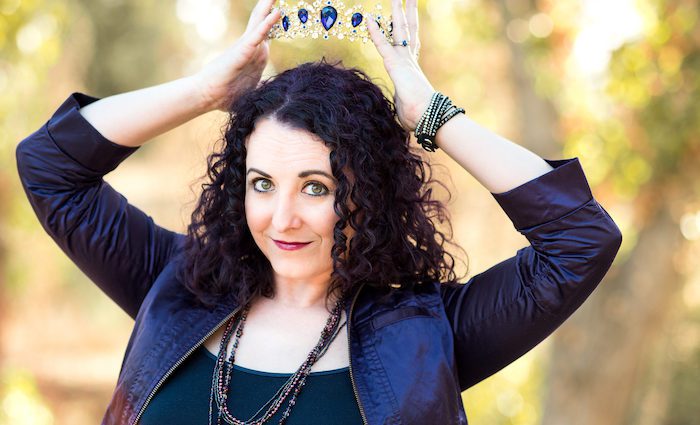As someone with anxiety issues, dealing with imposter syndrome and anxiety have been the hardest part of being an author.
It’s easy for me to get caught up worrying that whatever step of the process I’m in won’t work out. I would worry that I wouldn’t find an agent, then I’d worry that a publisher wouldn’t accept the book.
Even after the book sold, I’d stress that it might not sell well. After my debut came out, I would get anxious about the sequel or the book after that.
And there is a lot of rejection in this industry, so there when days when a lot of rejections would come in and trigger my anxiety.
Taking Care of My Mental Health is a Big Priority for Me
Dealing with anxiety has been a critical part of my life, especially when it comes to my writing.
I have clinical anxiety and depression, so making sure I take care of my mental health is a big priority for me. I see a psychiatrist to help keep my mental health in check.
I also work on various projects at the same time. This way, if I’m querying one title, I can focus on writing another story instead of wondering if the querying title will be picked up.
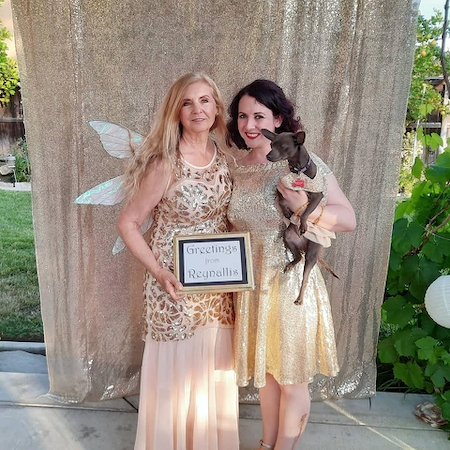
Writers Can Get Eyestrain and Headaches
Eye strain has been a big problem for me, especially once COVID started.
My office went remote, so my day job shifted to being entirely in front of a computer.
Follow that by several more hours writing in front of the computer, and I was starting to get a lot of eyestrains and headaches.
I got checked out by an optometrist and got stronger reading glasses. I also got glasses that filter out blue light, which has helped.
I still tend to get headaches, but not as bad as before.
How Being an Actor Has Helped My Writing
As an actor, I spent a lot of time getting into character.
As a writer, I use a similar approach and spend a lot of time imagining what it is like to be the characters I write about. Long before I even start plotting a book, I’m thinking about what the characters are like as people, and that has helped me to create fully fleshed-out characters.
I also am used to visualizing what a stage will look like. I also have found this helpful when I describe a scene or setting in my book.
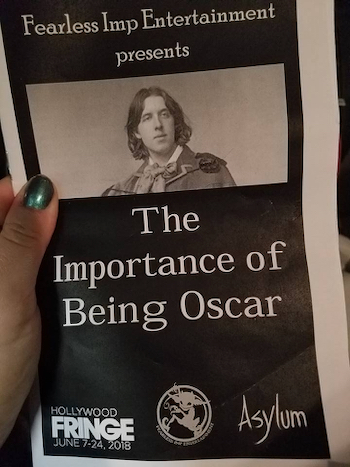
How Is Writing Plays Different from Writing Novels?
Plays are much shorter than novels. While a book can take days to read, a play needs to be performed in an evening. That’s important to keep in mind while writing a play.
Also, there are a lot more physical limitations to a stage play than the settings in a novel. It’s easy to change locations in a novel, but every scene change needs to be physically changed and not have it drag down the flow of the play. I tend to limit the number of scene changes in my plays and focus more on the dialogue, as even the action of the actors will be heavily influenced by the director and actors.
And that leads into another big change.
The art of live theatre is far more collaborative than novel writing. I find writing a book to be somewhat collaborative, working with others such as editors, agents, critique partners, and beta readers. But writing a novel is still primarily the work of an individual.
A play, on the other hand, is far more collaborative, and as a playwright, I must be willing to completely hand my work over to other creatives to finish. I might have the words written, but there are actors, designers, a director, and others who will all strongly influence the final performance.
My Most Successful Book Marketing Tactic
The best tactic has been finding my ideal readers and discovering ways to reach out to them.
I mainly write YA fantasy, so I wanted to know where to find teen readers. I reached out to BookTok influencers on TikTok who reviewed similar books to mine to see if they would be interested in reviewing my book.
How I Find Time to Write When I Work Full-Time
It isn’t always easy [to find time to write]. I work full-time as a marketing director for a home entertainment company, and it’s often a struggle to find enough time to do both.
I generally write for 30 minutes to an hour before work and will block off larger chunks of time over the weekends. I used to spend my lunchbreaks writing, but I’ve since found that I usually need to take a break from screentime.
I also have a writing group I go to on Wednesday nights. Meeting up with other people help keeps me accountable to show up.
My schedule also depends on what writing deadlines I might be on.
Advice for a Young Writer: Keeping Writing and Build Your Tribe
Keep writing and build your tribe. Writing can be rather solitary, so having friends who can support you during rejections and celebrate with you during wins is a great thing.
Joining a writing group is a great place to start building your tribe.
* * *
Brandie June spent most of her childhood onstage or reading, as both activities let her live in fantastic stories. She moved to Los Angeles to study acting at UCLA, and eventually branched out into costume design, playwriting, prose writing, and got her MBA in Entertainment Marketing.
Brandie promotes more stories as a marketing director for kids’ films and anime. When not writing or marketing, she can often be found doing aerial arts, playing board games, drinking too much espresso, and coming up with new art projects.
Brandie lives with her husband, two spoiled rescue pups, two baby birds, a cat, six fish tanks, and five bookshelves. She hopes to acquire more bookshelves in the near future.
To learn more about Brandie and her work, please see her website and connect with her on Facebook, Twitter, Instagram, and TikTok.
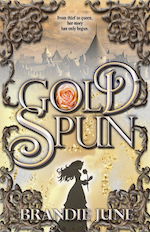 Gold Spun: If Nor can’t spin gold, she can always spin lies.
Gold Spun: If Nor can’t spin gold, she can always spin lies.
When seventeen-year-old Nor rescues a captured faerie in the woods, he gifts her with a magical golden thread she can use to summon him for a favor. Instead, Nor uses it for a con—to convince villagers to buy straw that can be transformed into gold.
Her trick works a little too well, attracting the suspicion of Prince Casper, who hates nobody more than a liar. Intent on punishing Nor, he demands that she spin a room of straw into gold and as her reward, he will marry her.
Should she refuse or fail, the consequences will be dire.
Available at CamCat Books, Amazon, and wherever books are sold.
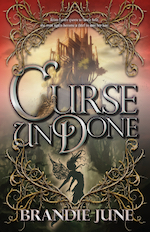 Curse Undone: Two crowns. Two kingdoms. One chance to rule.
Curse Undone: Two crowns. Two kingdoms. One chance to rule.
Nor and King Casper are captured by the fay army and forced to face the indomitable Faerie Queen, Marasina. At her command, Casper is thrown into a mysterious prison while an even sinister fate is in store for Nor―a deadly fay poison that reveals Nor’s true nature. She’s not only half-fay. She is Queen Marasina’s heir.
Revealed to be like the very creatures she despises, Nor must not only find a way to free Casper but also navigate a court that is as deadly as it is beautiful. Her allies are few, and though Pel claims to want friendship, Nor finds she cannot forgive his betrayal. As tensions mount and war looms between the kingdoms, Nor must choose a side, before it’s too late.
In this epic conclusion to the Gold Spun duology, Nor discovers that a glamour and a curse may be two sides of the same coin.
Available at CamCat Books, Amazon, and wherever books are sold.

